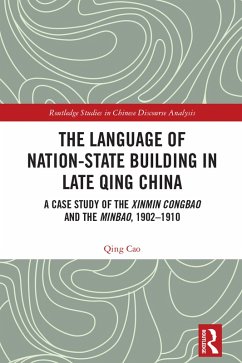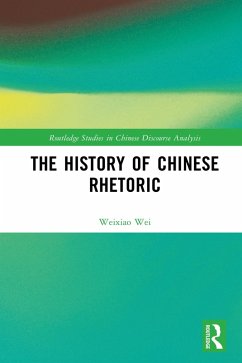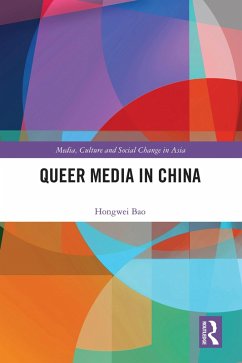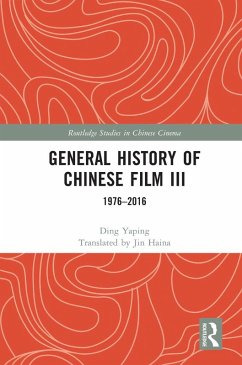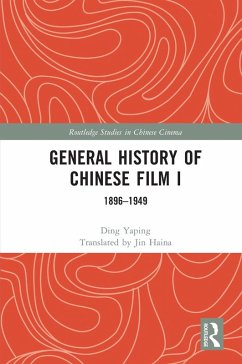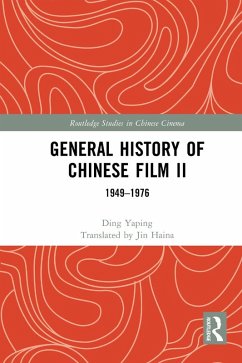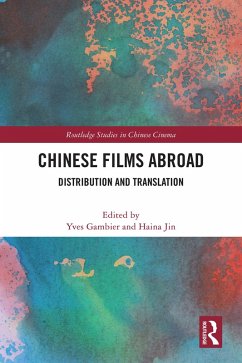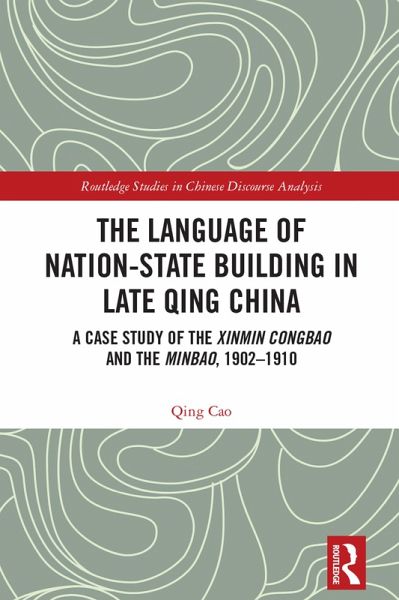
The Language of Nation-State Building in Late Qing China (eBook, ePUB)
A Case Study of the Xinmin Congbao and the Minbao, 1902-1910
Versandkostenfrei!
Sofort per Download lieferbar
39,95 €
inkl. MwSt.
Weitere Ausgaben:

PAYBACK Punkte
20 °P sammeln!
The Language of Nation-State Building in Late Qing China investigates the linguistic and intellectual roots of China's modern transformation by presenting a systematic study of the interplay between language innovation and socio-political upheavals in the final decade of the Qing Dynasty.This book examines the formations, internal tensions, and promotion of such macroconcepts as 'nation people' (guomin ¿¿), nation (minzu ¿¿), society (qun ¿), state (guojia ¿¿) and revolution (gemin ¿¿) as novel ideas borrowed from Europe but mediated through Meiji Japan. Using corpus-based discourse a...
The Language of Nation-State Building in Late Qing China investigates the linguistic and intellectual roots of China's modern transformation by presenting a systematic study of the interplay between language innovation and socio-political upheavals in the final decade of the Qing Dynasty.
This book examines the formations, internal tensions, and promotion of such macroconcepts as 'nation people' (guomin ¿¿), nation (minzu ¿¿), society (qun ¿), state (guojia ¿¿) and revolution (gemin ¿¿) as novel ideas borrowed from Europe but mediated through Meiji Japan. Using corpus-based discourse analysis of the full-text corpus (4.2 million words) of the two most influential periodicals, Xinmin Congbao (¿¿¿¿) and Minbao (¿¿), this book scrutinises the multi-faceted formulations of these concepts and their impact. It underscores the adaptation and appropriation of European post-enlightenment values to the socio-political conditions of late Qing society.
The analysis centres on the epic debate (1905-7) between these two periodicals that offered two distinctive visions of future China. Comparable to the great eighteenth-century debate between Edmund Burke and Thomas Paine on the French Revolution, the Chinese debate has hitherto attracted little scholarly attention outside China. Yet it not only turned the tidal wave of public opinion against the Manchu monarchy and contributed to its downfall in 1911; it has also given rise to a radical undercurrent of intellectual thinking whose ramifications have been keenly felt throughout twentieth-century China. This book represents the first study in English on this press debate that contributes significantly to the intellectual foundation of modern China.
This book will be useful and relevant to academics, postgraduate students and final year undergraduate students in the field of Chinese studies, and anyone interested in the role of language in shaping modern intellectual history.
This book examines the formations, internal tensions, and promotion of such macroconcepts as 'nation people' (guomin ¿¿), nation (minzu ¿¿), society (qun ¿), state (guojia ¿¿) and revolution (gemin ¿¿) as novel ideas borrowed from Europe but mediated through Meiji Japan. Using corpus-based discourse analysis of the full-text corpus (4.2 million words) of the two most influential periodicals, Xinmin Congbao (¿¿¿¿) and Minbao (¿¿), this book scrutinises the multi-faceted formulations of these concepts and their impact. It underscores the adaptation and appropriation of European post-enlightenment values to the socio-political conditions of late Qing society.
The analysis centres on the epic debate (1905-7) between these two periodicals that offered two distinctive visions of future China. Comparable to the great eighteenth-century debate between Edmund Burke and Thomas Paine on the French Revolution, the Chinese debate has hitherto attracted little scholarly attention outside China. Yet it not only turned the tidal wave of public opinion against the Manchu monarchy and contributed to its downfall in 1911; it has also given rise to a radical undercurrent of intellectual thinking whose ramifications have been keenly felt throughout twentieth-century China. This book represents the first study in English on this press debate that contributes significantly to the intellectual foundation of modern China.
This book will be useful and relevant to academics, postgraduate students and final year undergraduate students in the field of Chinese studies, and anyone interested in the role of language in shaping modern intellectual history.
Dieser Download kann aus rechtlichen Gründen nur mit Rechnungsadresse in A, B, BG, CY, CZ, D, DK, EW, E, FIN, F, GR, HR, H, IRL, I, LT, L, LR, M, NL, PL, P, R, S, SLO, SK ausgeliefert werden.




